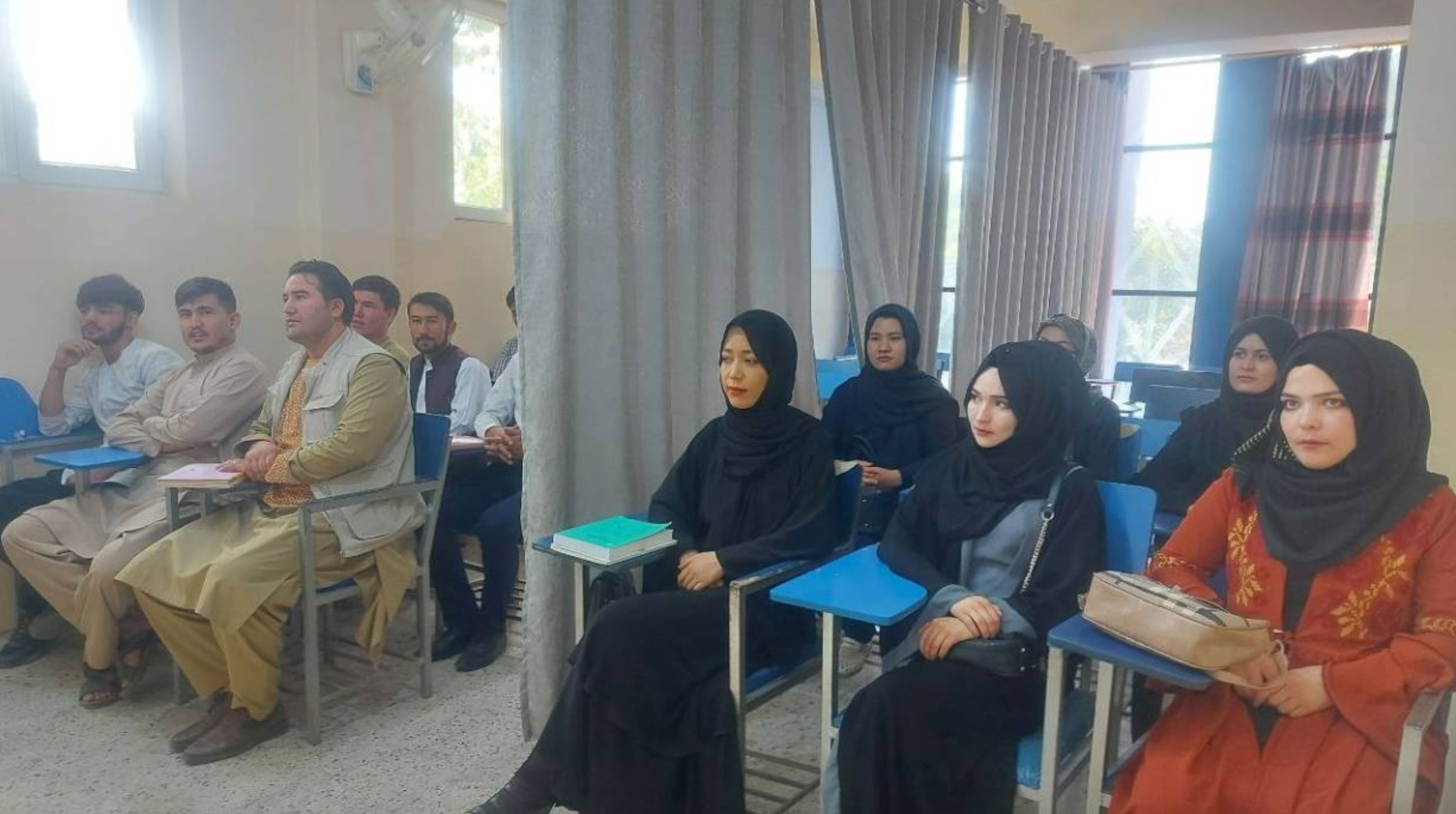
Students attend a class under new classroom conditions at Avicenna University in Kabul, Afghanistan, September 6, 2021. /Reuters
Students attend a class under new classroom conditions at Avicenna University in Kabul, Afghanistan, September 6, 2021. /Reuters
Students across Afghanistan returned to classes on Monday as the country's almost deserted universities reopened for the first time since the Taliban came to power.
In major cities including capital Kabul, female students at several universities are reportedly being segregated in classes, taught separately or restricted to certain parts of the campuses. A widely circulated photo on social media shows female students being separated from their male peers by a curtain down the middle of the classroom.
Women's rights in Afghanistan have been closely monitored by the international community, which has raised concerns about Afghan women's rights to education and employment under Taliban's rule. Those rights were severely curtailed under the conservative Islamist group when it was last in power from 1996 to 2001.
Different for women this time?
The Taliban's education authority issued a lengthy document on Sunday outlining their measures for the classroom, which also ruled that men and women should be segregated – or at least divided by a curtain if there are 15 students or less.
Women can only attend classes if they wear an abaya and a niqab and are separated from men, the group said.
At private colleges and universities, which have mushroomed since the Taliban's first rule ended, women must only be taught by female teachers, or "elderly men," and use a women-only entrance, according to another document circulated by an association of private universities in Afghanistan and seen by Reuters.
They must also end their lessons five minutes earlier than men to stop them from mingling outside, the AFP reported.
So far, the Taliban have said nothing about public universities.
A senior Taliban official told Reuters that classroom dividers such as curtains were "completely acceptable," and given Afghanistan's "limited resources and manpower" it was best to "have the same teacher teaching both sides of a class."
For some women, however, it was a relief that they would still be able to attend university at all.
Zuhra Bahman, who runs a scholarship program for women in Afghanistan, said on social media she had spoken to some of the students.
"They are happy to go back to university, albeit in hijab," she said. "Taliban opening universities for women is a key progress. Let's continue to engage to agree on other rights and freedoms."

Gharjistan University is pictured after private universities reopened in Kabul, Afghanistan, September 6, 2021. /AFP
Gharjistan University is pictured after private universities reopened in Kabul, Afghanistan, September 6, 2021. /AFP
Brain drain concern
On Monday, there was a strikingly low turnout at Kabul's universities, with education leaders fearing many more of the nation's young and talented people have fled the country.
Noor Ali Rahmani, director of Gharjistan University in Kabul, estimated up to 30 percent of the students left Afghanistan after the Taliban seized control in the middle of August.
Rahmani told AFP that only 10 to 20 percent of the 1,000 students who enrolled last year came to Gharjistan University on Monday, although there were no classes scheduled.
Several teachers said there was uncertainty over what rules would be imposed under the Taliban, who have yet to form a government.
Sher Azam, a 37-year-old teacher at a private university in Kabul, said he was worried about how many students would come back, given the economic crisis the recent turmoil has triggered.
"I don't know how many students will return to school, because there are financial problems and some students are coming from families who have lost their jobs," he told Reuters.
For 28-year-old computer science student Amir Hussein, "everything changed completely" after the Taliban takeover, he said.
"Many students are not interested anymore in studying because they don't know what their future will be," he said.
(With inputs from Reuters and AFP)

